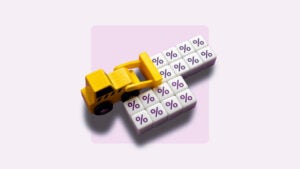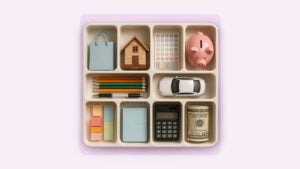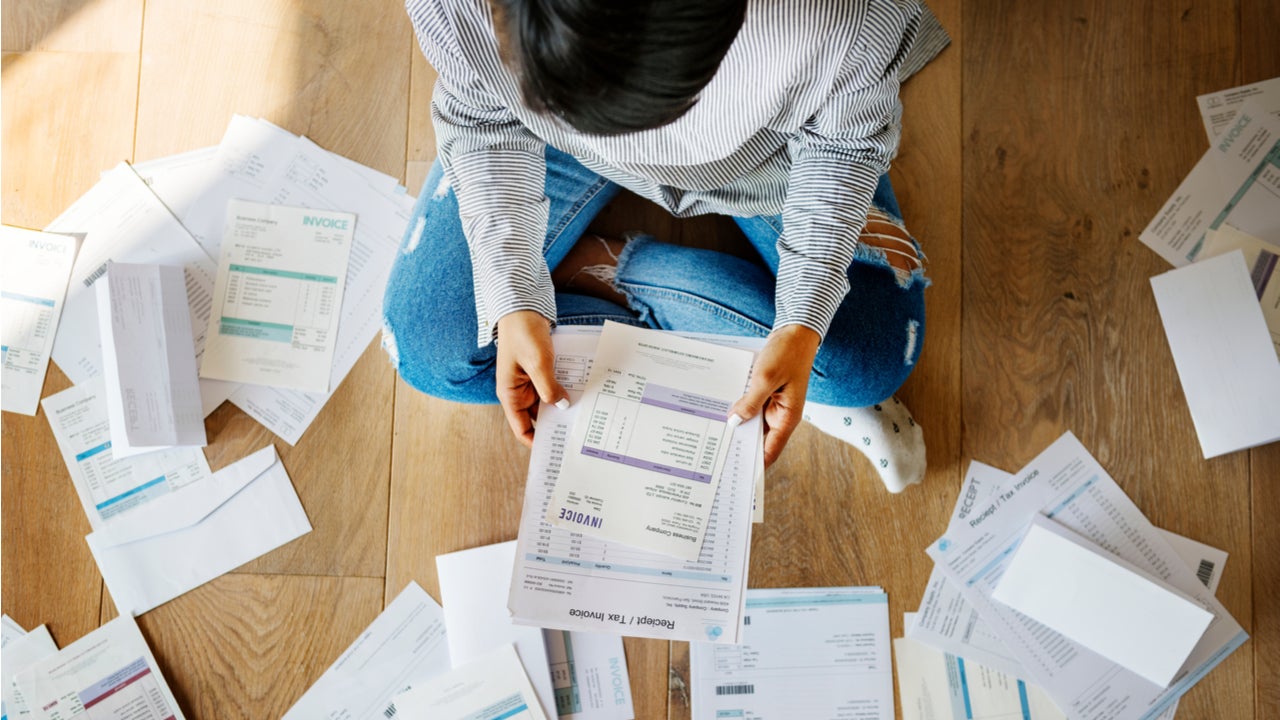How to use a settlement or judgment to pay off debt and improve credit




Key takeaways
- Make sure you don’t owe federal or state taxes on your legal settlement.
- Use your settlement money to pay off credit card and other debts first.
- Budget any remaining funds for savings, retirement or college for your children.
When you’ve taken legal action against an individual or company, you may have been awarded money for damages from a settlement where you and the other party agreed to an amount that everyone can live with without having to go to court.
Or maybe you took it all the way and you won a lawsuit which resulted in a judgment in your favor. Either way, you now have a sum of cash at your disposal.
Although money from settlements and judgments can feel like a windfall and your first inclination may be to splurge, it’s best to slow down and take a clear look at your entire financial picture. Often, that includes paying off debt, which can improve your credit rating. Do your best to spend it wisely.
Prepare for taxes
Before getting excited about that lump sum of cash coming in, understand that the money may not be all yours, because you may have to pay taxes on it. Most awards are considered income, making them taxable events, according to the IRS. Unless it’s exempt by a section of the IRS code, prepare to send a portion of the money to Uncle Sam.
What settlements and judgments are exempt from taxes? The IRS includes the following:
- Any compensation received for personal physical injuries, such as medical malpractice or getting hurt in a car accident.
- Proceeds received for emotional distress or mental anguish are treated the same as funds received for personal physical injuries or physical sickness.
- Child support, disaster relief assistance, financial gifts from friends or family, inheritance estate taxes, interest on municipal bonds, life insurance death benefits, profit on your home sale and Roth IRA income.
In all other situations, the settlement or judgment award is considered income, so you’ll have to pay taxes on it — and the bill could be more than you think. Congress passed a law in 2017 that didn’t tax compensation for physical injuries or sickness, but said that punitive damages and interest on settlements are taxable as income. Payments for emotional distress or defamation are taxable unless tied to a physical injury.
Finally, the law limited the ability to deduct attorney fees in certain cases.
We strongly recommend speaking with a tax professional before taking any action with your settlement money. The last thing you want is to spend it all, then receive an IRS 1099 form in the mail when tax time comes around and not be able to pay it.
So if you even think you might owe taxes on your settlement, set money aside or pay the amount due now, before you spend it on other things.
Pay off credit cards and other high-interest debt
Once you’ve established a post-tax settlement figure, you can figure out what to do with the rest of the money. And one of the most important tasks is to take a hard look at your debts. Check the most recent balances for all your credit cards and loans and review the interest rates for each.
When interest rates on your cards are high and you’re not paying them off or are only making minimum payments, that can start to add up. When you delete costly debt first, you won’t have to keep making credit card payments, giving your budget some breathing room.
Don’t forget to pay off balances from creditors, including utilities and medical providers such as physicians, hospitals and dentists. It’s the same with personal obligations. If you borrowed money from friends and family during your time of need, now is the time to make good on those debts.
Another priority is secured accounts, such as mortgages and car loans. If you’re behind on those, use some of your settlement money to get back on track. This will be especially important if you are facing foreclosure or repossession.
Check your credit
Go to AnnualCreditReport.com and pull your credit reports from TransUnion, Equifax and Experian. You want to make sure that the information on your report is correct. If it’s not, dispute any inaccuracies. All of this is free for you to access.
You may have experienced credit damage because of what led to the lawsuit. For example, because you couldn’t work and earn as normal, your reports may show evidence of late credit card and loan payments, accounts that were charged off or sent to collections, car repossessions or defaulted student loans. If so, your credit scores were negatively impacted.
Access your FICO Scores or VantageScores to learn your rating. They range from 300 to 850, with higher numbers being preferable.
| Score ranges | FICO | VantageScore |
| Excellent | 800-850 | 781-850 |
| Very good | 740-799 | 661-780 |
| Good | 670-739 | 601-660 |
| Fair | 580-669 | 500-600 |
| Poor | 300-579 | 300-499 |
Don’t worry if your scores are near the bottom. Consider it a starting point, since they will change with your activity.
Deal with remaining debt
When you delete revolving debt, your credit scores will be recalculated based on the new activity. Therefore, if you had high balances compared to your credit lines and now owe nothing, your credit scores should increase.
You will also see a score increase after clearing up debts with collection agencies. The most current scoring models (FICO® 9, and the VantageScore® 3.0 and 4.0) don’t factor in collections that have been zeroed out.
If you’re behind on car payments and mortgages, you can get those accounts back in good standing by paying what you owe. Once they show up as current on your credit report, again, your credit scores should increase.
Just be aware that it won’t erase all of your past credit problems. For example, delinquencies will remain on your credit report for seven years, while Chapter 7 bankruptcy will remain for 10 years from the date you filed.
Add positive credit information
You also can add regular positive information to your credit reports that will eventually offset the negative marks by doing the following:
- Use open accounts again. If you have credit card accounts that are still active, start using them again — but this time, make sure you pay the balances in full and on time.
- Apply for a new credit card. If you don’t have any open accounts, apply for one that matches your current credit profile and lifestyle. If your credit has been damaged, focus on cards designed for people with low credit scores.
- Consider a secured credit card. Put some money from your judgment or settlement as collateral. The more you put down, the larger your credit line will be. This way you can charge even expensive items without hitting your limit. Depending on the secured credit card, it may convert to an unsecured account after handling it well after a period of time.
- Pay all loans on time. If you fell behind before, now you can get back on track. Every on-time payment will be recorded on your credit report and factored favorably into your scores.
Once your credit scores are in a better place, you may want to apply for one of the best credit cards, or take out a loan with a low interest rate. Just be sure to maintain the same pattern of making on-time payments and carrying low or no debt on your credit cards.
Spend rationally
You may have denied yourself simple pleasures while waiting for that award to come through. Now that you have it, it’s time to ease up after paying off all that debt, right?
To some degree, yes. However, it’s important to take a long view on your financial picture. If your budget has been constrained, you can loosen it up with the money you have left at your disposal. Identify the things that you need and have been putting off, such as new clothes or a functioning laptop.
The point is to concentrate spending on the goods and services that are most valuable to you and your family. You don’t have to stick only to essentials. Maybe it’s time for a vacation. Evaluate your needs and meet them first, then allow yourself the luxury of something more extravagant.
Prepare for the future
One of the biggest stressors that people have is not being able to pay for emergencies. In fact, 47 percent of U.S. adults said money has a negative impact on their mental health at least occasionally, including causing stress, according to Bankrate’s 2024 Money and Mental Health Survey.
Don’t let this happen to you. In most cases, going through a lawsuit is already a psychologically difficult event, so do yourself a favor and set a portion of the money aside in the following categories:
- Emergencies: Some should be for the unknown, such as job loss or unexpected expenses like car repairs. In general, that means having three to six months’ worth of essential expenses in an account that you can draw from without penalties.
- Higher education: College can be wildly expensive. According to the Education Data Initiative, the average cost is $38,270, including books, supplies and daily living expenses. You may want to fund a tax-advantaged 529 plan for your kids’ college education.
- Enjoyment: Also hold back a certain sum for the things that you want to do that give you pleasure. You can use your credit card to pay for them (especially if you get rewards) and then use the money in the savings account to delete the debt.
- Retirement: If you have neglected saving for your retirement, and those years aren’t so far in the future, fund your retirement account with some of the money.
The bottom line
Getting a lump sum of cash can be an intoxicating experience, especially if you’ve had to live within a tight budget for years and been weighed down by pressing bills.
By following this plan, you can use the settlement or judgment wisely. Moreover, you can have good credit products and excellent credit scores that will help you not just today but for many years to come.
Frequently asked questions about what to do with settlement money
Why we ask for feedback Your feedback helps us improve our content and services. It takes less than a minute to complete.
Your responses are anonymous and will only be used for improving our website.





